I have a lucky shirt.
Everyone who sees it hates it the first time they see it. It has helped me win the worst dressed founder of the year award multiple times. My loving wife who puts up with a great deal of stupidity on my part, draws the line on this shirt. She has a hard time understanding why I would be comfortable wearing something that appears to be a dishrag.
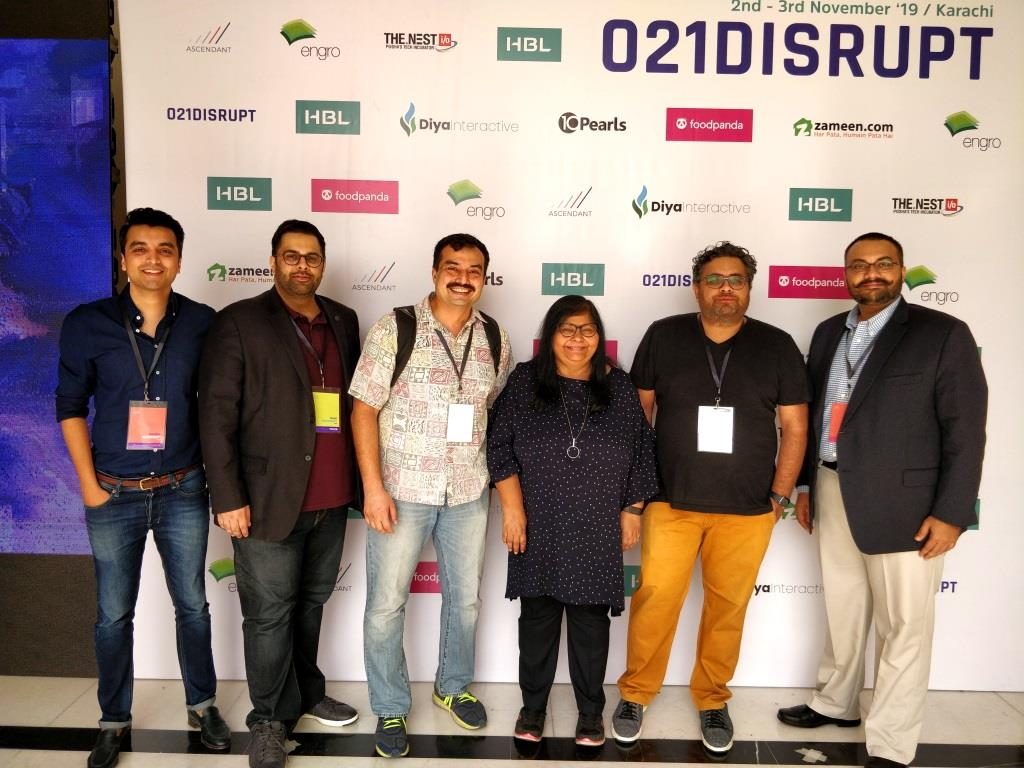
The shirt has a real history. The color of paper yellowed with age, all of nineteen years old, older than two of my three children. I bought it on a whim from Costco next to Soup Plantation in Fountain Valley, Orange County in March 2000.
I wore it when I raised my first round. During my darkest days, when there was neither money nor light, I put it on to cheer myself. It saw us grow our first big kick ass product from zero to half a million dollars in revenue in less than three years. If you go through old grainy videos of me speaking at conferences, you can catch a glimpse of me rolling around on stages across the world. Well-worn Levi, sneakers and my lucky faded shirt.
Comfortable, like silence, among old friends.
As the fabric started to wear thin, it now only sees the light on special occasions. On days when I feel lucky. A tall order for a battle-hardened cynic. After surviving the 1998 sanctions against Pakistan, dotcom boom and bust cycle in LA in 2001, global financial meltdown in 2008, S&P credit rating cut heard across markets in August 2012, commodities price crash year end 2014, slow down in 2019 and four local currency adjustments that hit all of us where it hurts, in between, it takes a lot to make me feel lucky.
Yesterday at #021Disrupt19 I wore the shirt after many years. As a medal or badge of courage from a great war. Also, as a silent tribute to the event and the team behind it. Fawzia protested, but I convinced her that it was important for me to take it out of the closet and put it on.
I wore it because at 021Disrupt19 I felt the gentle whispers of luck again. The inner glow, things are going to work, we are on the right track, planets are all aligned, take a punt, ask and thou shall receive, luck, lucky.
It is a special feeling. Not something you feel every day. As if the Matrix had been reconfigured in your favor and you have finally cracked the code.
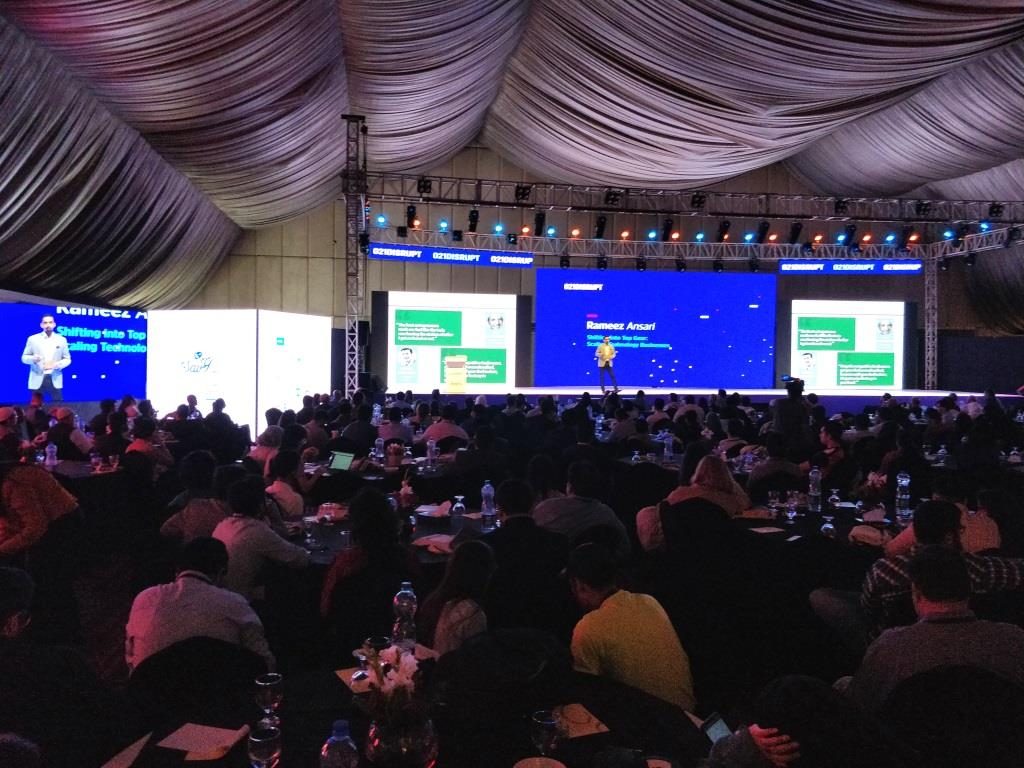
For two days running in Karachi, this weekend, I felt destiny at work all around. How else would young kids, barely out of school, get a chance to pitch to Chris Rogers (hello Chris) or close deals in real time with Charles Ludwig at Oman Technology Fund. Or manage to get 215 office hour appointments with seasoned founders, investors, mentors and influencers. Or me running into Ali Nawab and finding out that he read the Blue Screen of Death (Ali check out the 3rd Edition) when it came out. That the man whose session I was waiting for, has followed me ever since my first book was published. It took 13 years and 021Disrupt19 to bring us together.
He had recognized the lucky shirt.
But it wasn’t just me. Mudassir Shiekha from Careem felt the same tender touch. Admitting to a room full of dreamers and fans, that while hard work, vision and commitment certainly had a place, in the end, it was blind luck. We don’t all travel the same road but more often than not, it is a question of the right product at the right time for the right market at the right price.
Mudassir also spoke about simplifying lives for his customers, about giving back and three kids in Bangladesh of a humble taxi driver in UAE who were the original inspiration for Careem.
Hard work and inspiration, yes, but luck too. Too many variables to get right in a lifetime without a bit of luck’s lucky touch.
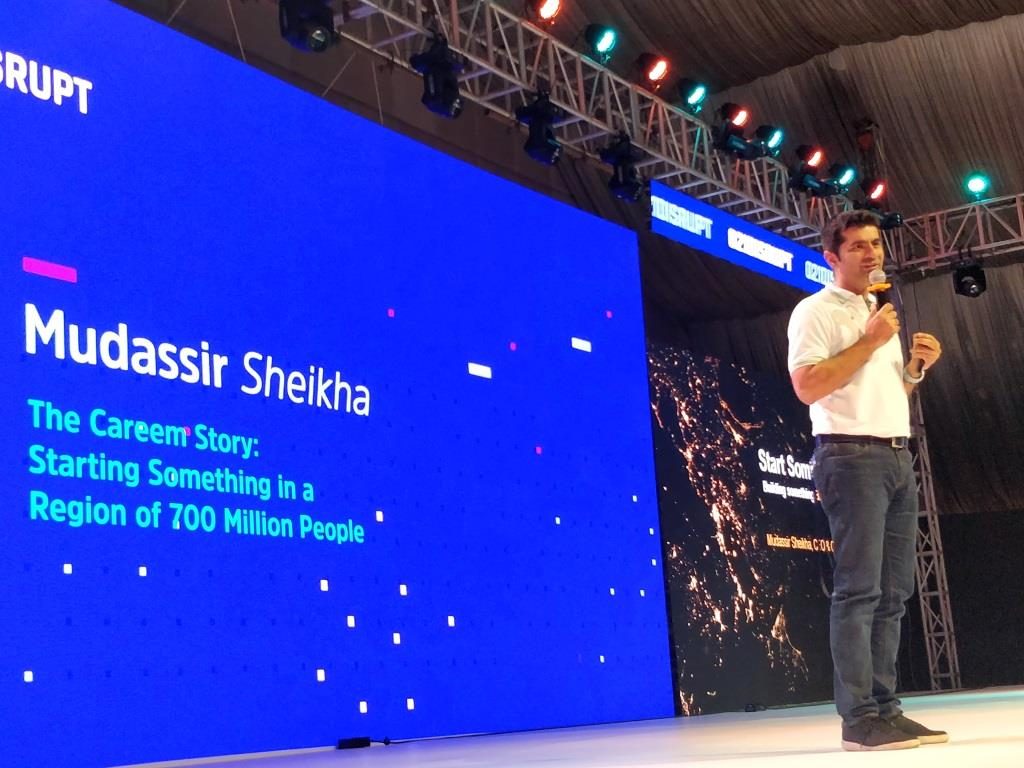
Why 021Disrupt19?
Beyond luck, I went to 021Disrupt to learn and catch up with friends and peers, I wouldn’t get a chance to meet otherwise. For startup founders across Pakistan, 021Disrupt is like the big family Eid dinner where you run into long lost cousins, siblings, rich uncles and aunts, once every year.
If you are lucky you come home with a thick wad of envelopes filled with Eidi (read: cash). If you are not, you still get an overstuffed stomach from Eid’s festive fares.
The challenge at tech conferences like 021Disrupt is maintaining a balance between sessions you want to attend from speakers you want to hear and networking with people you want to meet.
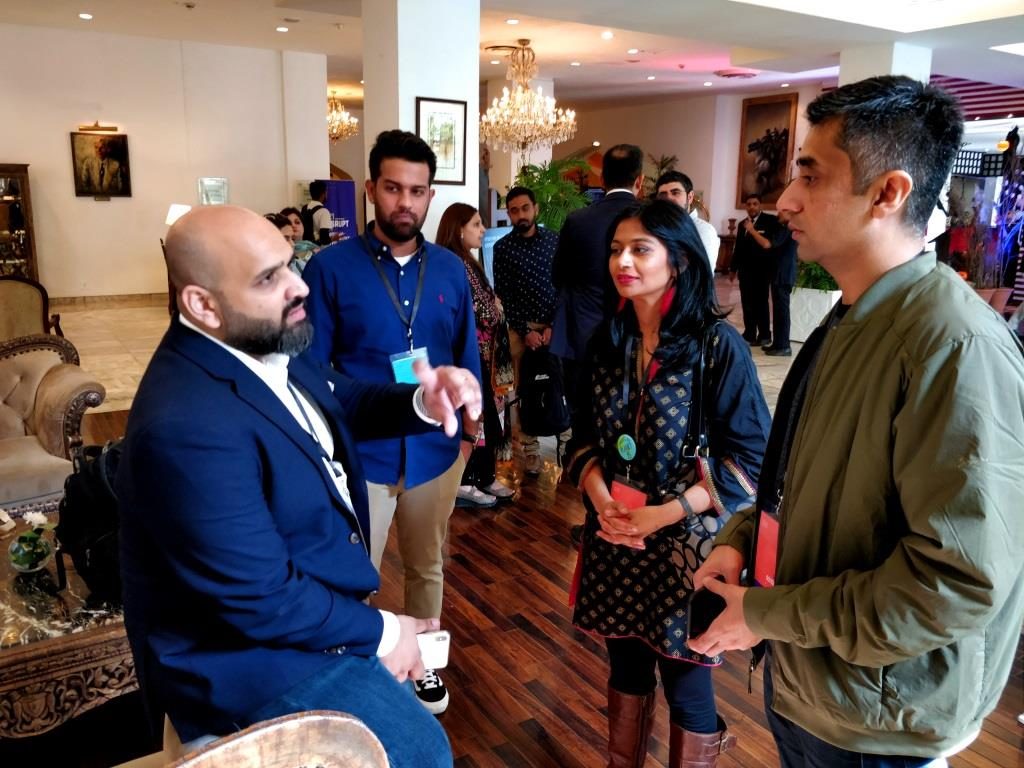
In between the sessions and the conversations were unexpected gems. Liked stumbling on one of the best hooks for a pitch I have ever heard in recent years; Sarmyacar’s European partner’s plea for a Pakistani passport because he was tired of filling in the online visa application forms. Or his simple advice to founders. Investors are not ATMs. Don’t come to them for just cash. They must add value.
Back to the hook for the best pitch, if you were wondering:
“Are you unfit, cheap and have long term commitment issues?”
A lifestyle and fitness app out of NestIO (Fittmaap?) dropped this jewel during the startup rapid fire session on day two. I had missed the pitching session on day one due to an impromptu conversation outside the main conference hall that got extended into a two hour deep dive. But I promised myself I wasn’t going to miss it on day two. It was well worth the wait.
There was a long list of friends too and four sessions I was keen on attending. Chris Rogers from Lumia Capital. The gentleman who co-founded and grew Nextel to 13 billion dollars in sales and sold it to Sprint for 3x revenue.
This was Chris’s second year at 021Disrupt. I missed his original session in 2018 and had been kicking myself ever since. The second was Sheba Najmi from Linkedin and Code for Pakistan on using technology for civic impact in KPK. Sheba is an old family friend who has grown from strength to strength and has done really interesting work in the North. The third was Atif Awan from Indus Valley Capital on making the case for Pakistan. As someone who once thought of raising a Pakistan fund, I wanted to hear Atif’s Pitch for Pakistan.
The fourth was Ali Nawab on product market fit for founders. Isfandiyar Shaheen pitch on making internet access affordable for all, I had already managed to catch the day before 021Disrupt at Habib University. We had also gotten our catchup session out of the way when I drove Isfandiyar to his dinner appointment with the invest2innovate team on that night.
021Disrupt19 hadn’t just taken over the weekend in Karachi, it had spawned a horde of pre and post events. A fire had been lit under the entire ecosystem.
Chris Rogers and the case for Pakistan?
Someone finally asked Chris Rogers the question, why do you come to Pakistan Chris? What do you see that others can’t see? Here is what Chris said, among other things.
“Why am I here?”
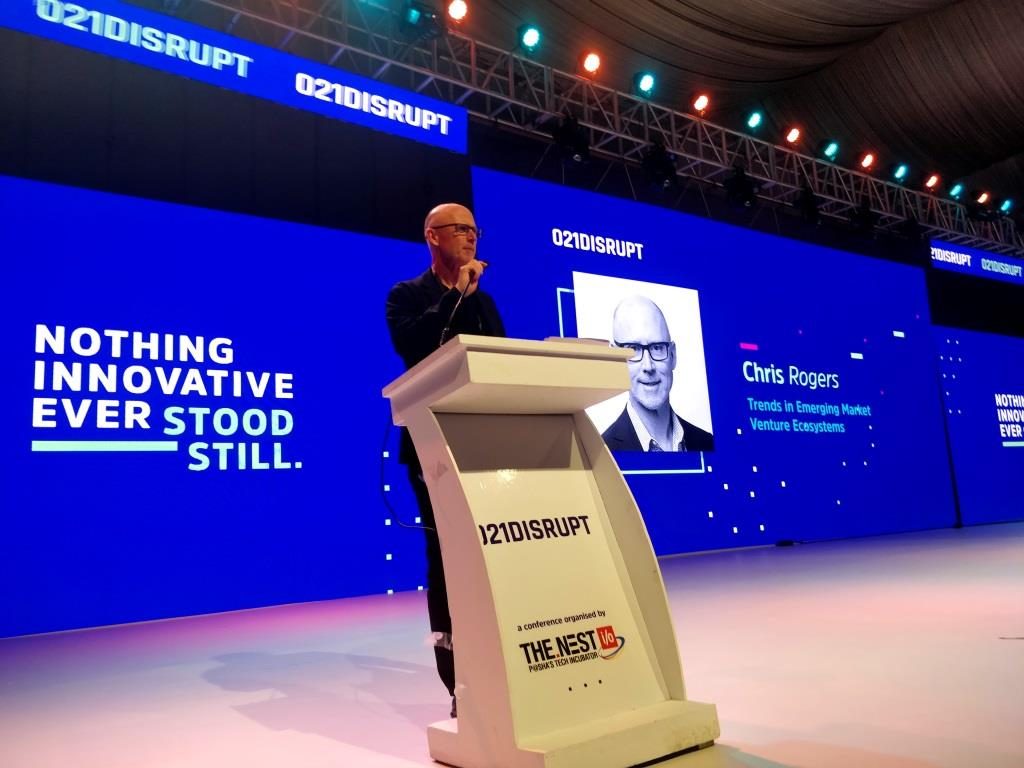
“As part of my work over the years in the telco industry, I have always been aware of Pakistani talent. Always knew the talent pool was deep and gifted in this country. But mainly here because Akash Shaikh was the only one who broke through a ring of bodyguards of Turkcell’s CEO, who I was meeting in Turkey, to pitch me to come to Pakistan at Startup Istanbul in 2016. It was a compelling two-minute pitch. Ask Akash for help if you want to learn to make compelling pitches. It helped that I had invested in Careem and when I spoke to Mudassir he encouraged me to come visit the city he was born and raised in. But I am here primarily because of Akash.”
Chris also spoke about our other challenges and mistakes we make when we engage with investors and mentors as founders.
“Please answer the question. Don’t spin the answers. There is no judgement. As investors we just need to know where you are in your journey so we can focus on what we can share or learn. There is no shame in sharing numbers. Even if you are making 10 dollars. It is just a data point. Don’t make me work to get the facts out of you.”
The most promising part of Chris’ session had nothing to do with founders, pitches or his reasons for coming to Pakistan. My ears perked up when I heard him casually drop the following thoughts.
“There is a great deal of excess capital chasing too few deals in the region. A lot of money has been raised and is in the process of being put together in investment funds. But there aren’t enough deals for all that capital. Right now, capital is looking for deals in the original proposed geographies. That will change. It will have to cross borders to go where the deals are. Some of it is ultimately going to flow and find its way here.”
Oman Technology Fund’s Charles Ludwig would agree. In a short span of 18 months, OTF has already invested in six startups in Pakistan. So would Gobi Partners, whose senior partner, Thomas G. Tsao, like Chris was in attendance for the second year.
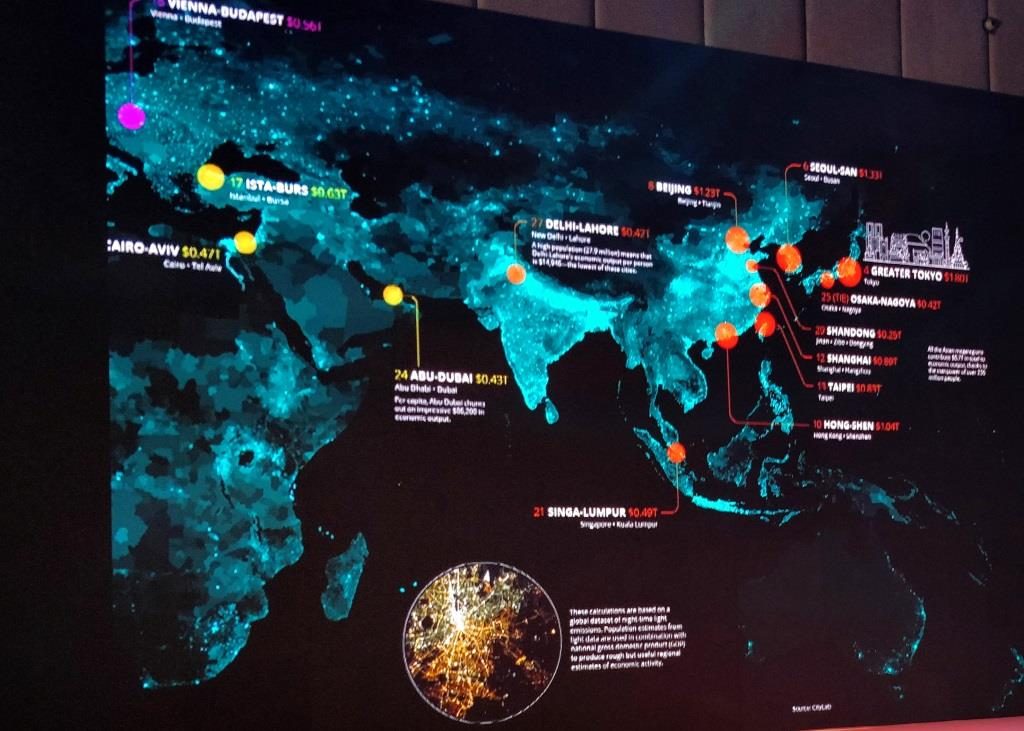
Navin Danapal’s session on building partnerships and networks also spoke about cross border connections and market entry in South East Asia. Navin’s filter focuses on the intersection of wealth, capital, markets and talents. While Navin pitched Singaplumpur – a market driven by the dynamics of Kula Lumpur and Singapore, you could clearly see the case for other markets being made on his impressive slide deck. While Navin put up Lahore Delhi and Abu Dhabi on his map, we are likely to see Karachi Dubai Mumbai the next time we see him make the same presentation.
Ali Nawab and Product Market Fit.
There was a recessed sofa out of sight of the main audience, just before the presentation stage. Right next to the big media side screens giving me a perfect private view of the stage. That is where Ali Nawab found me tweeting about Banking on Fintech panel on the 2nd day of Disrupt. He was on his way to get miked up for the stage when he stopped by to say hello.
We poked a common friend on stage using twitter, made fun of all things banking and fintech related and thought about ways to save the audience from a panel discussion that had turned into a dialogue and was increasingly looking like a long monologue.
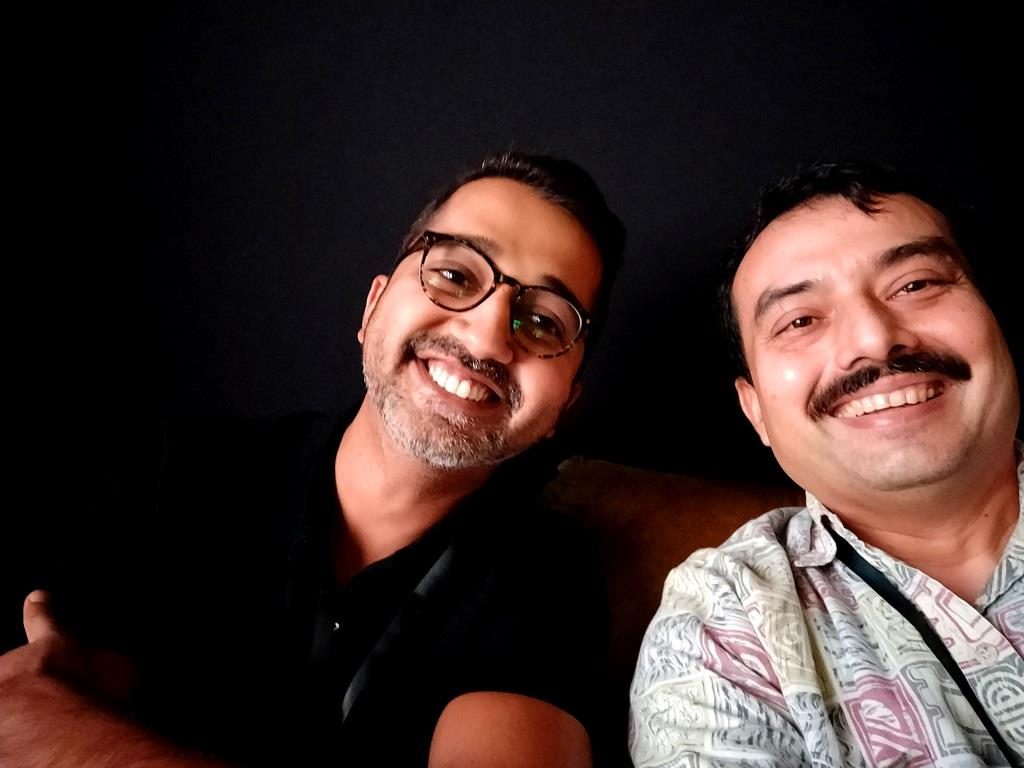
But here is what Ali had to say when he did make it to the stage.
As a founder, find what is true but not obvious. Reduce the number of your blind spots. Writing code is an expensive way to validate ideas. Talk to your customers before you do that.
Sheba Najmi from Code for Pakistan said the same thing in her using technology for public good session.
Lead with people, not problem, ask them for what they want, don’t impose your view of the world or the problem that needs to be solved.
Her case studies from Honolulu and Oakland to Peshawar and Islamabad reinforced the point, city after city. Ask the people you want to help. Then ask them for help.
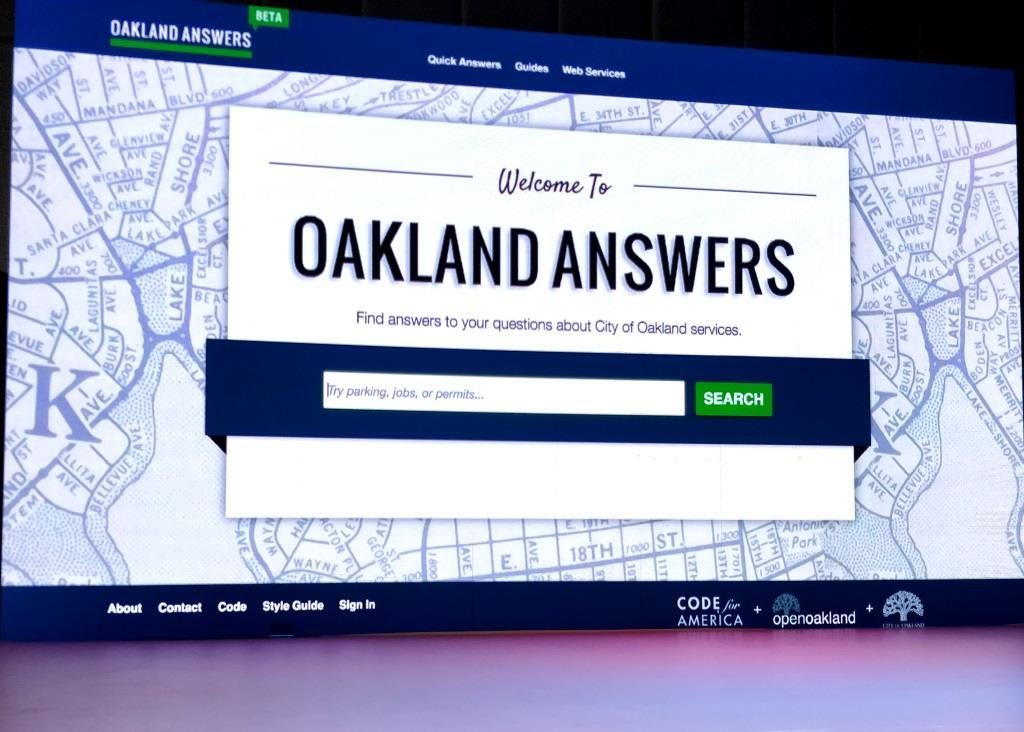
Ready. Aim. Fire. Not. Fire. Ready. Aim
Ali went a step further. How do you do research on a product, a concept or even competition?
Look it up on twitter. Turns out twitter is your best friend as a founder. Followed by HRef and then Reddit. Use these tools to dig your competition and their products. You would be surprised at the dirt that comes up. It’s all in the hashtag.
Ali’s model was a simple four-week sprint.
- Spend a week researching.
- Spend the next week talking to customers.
- Spend the third week building your prototype.
- Spend the fourth week showing it to them
Rinse and repeat. A lot cheaper than spending a year writing code and then finding out you misunderstood the key requirement, pain or reason to use your product.
Can’t wait for next year.
I would pay good money to hear these speakers again. The fact that I could interact with them right here in Karachi meant a great deal to me and the eleven hundred delegates who came to hear them. To see that there were so many of us now, compared to when we started, wasn’t just validation. It renewed and revived your faith.
Founders and students were heavily subsidized by the NestIO community of sponsors. If you had been following offers launched once ticketing and reservations went live, you would have found ways to get in at heavily discounted rates. Still, there were many disappointments. And some persistent, interesting attempts at gatecrashing. Some succeeded, others did not.
From fighting the Imposter syndrome to making things work at Google, from building the case for affordable internet to making the case for Pakistan in investor circles, the content presented at 021Disrupt was at par with any other tech conference, anywhere in the world.
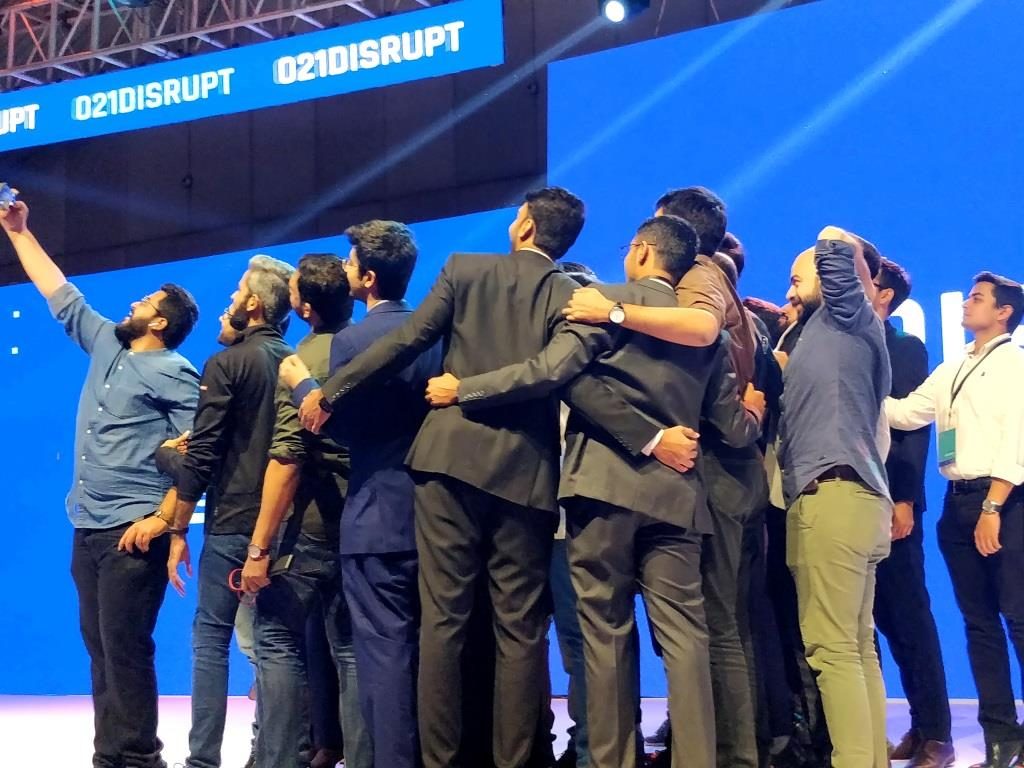
The real action however was in the corridors, the meeting rooms, the parking lot, the waiting areas, the networking breakfasts, lunches and dinners.
A conference is always more than the content it presents. But to capture that value your hustle must be strong. Across its three editions in 2017, 2018 and 2019, Disrupt has done a great service to the local ecosystem to teach founders and startups how to hack a conference and its speaker circuit.
For investors outside of Pakistan, it has helped them see the softer, promising side that no amount of media coverage can do. Food, music and hospitality only goes so far. Its the ideas, the overflow of talent and energy that keeps bringing investors back.
If you don’t have teams on the ground, you don’t have the full picture. Oman Technology Fund, Gobi, Sharooq, Tharros, Sarmayacar, Laksons, Qadisha, Patamar, Indus, Highland, MVP, VAN, Lumia, TPL, 47 ventures, Ithaca, Informa, Invest2Innovate, Disrupt, SOSV, Mox, Virtual Force, Spark Labs, Karavan, Magnus and Ellahi Group were all here at 021Disrupt19.
What is holding you back? New York Times? The Economist?
Intelligent investors learnt this lesson long ago. Go to the source my friend. Get there before everyone else does. Beat the crowd, start riding the wave before it begins to form.
We can clearly see the results. The format and structure of the investor round table has changed dramatically over three years. From talking about the case for Pakistan we are now talking about actual issues in live deals in the market. Three years ago we were wondering who was coming. Three years later we have 52 fund managers, investors and LP’s in the room. And the room had to be upgraded to a hall.
This is where 021Disrupt and the team behind the event gets the credit.
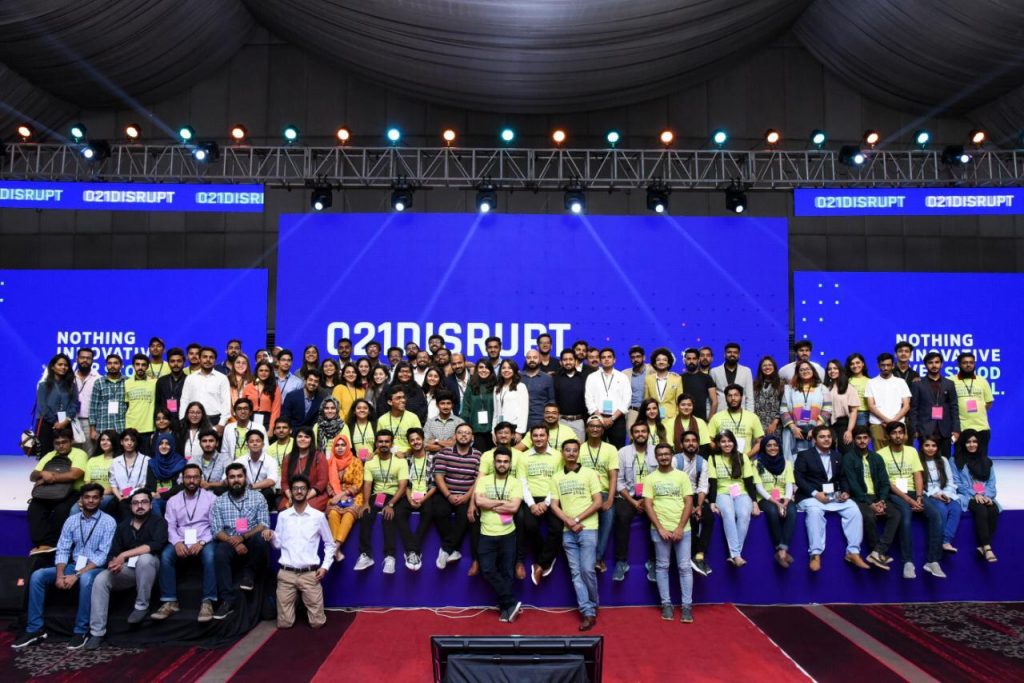
It takes a special kind of magic to bring founders, investors, partners, mentors and well wishers together. It takes even more to get them to come back again and again. To get conversations started. To make connecting with icons like Chris, Charles, Thomas, Sheba and Mudassir as simple and as easy as a handshake or a nod. To keep them all engaged and entertained for two days in a row on a weekend in Karachi. To infect everyone attending with energy, hustle and a sense of destiny.
The least I could do to say thank you was to wear my lucky shirt.
